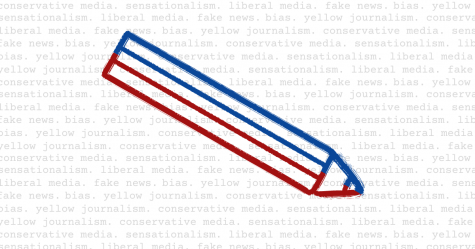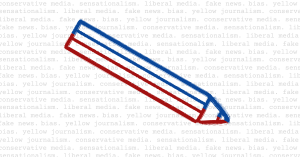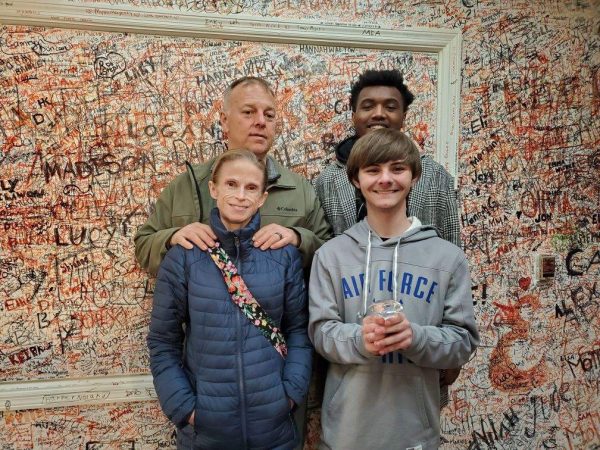Fake News, Court Fills And Swamp Monsters: The Downfall Of Donald J. Trump
Examining how the current President changed America’s political climate, for better or for worse

After four controversial years in office, President Trump lost the 2020 election.
December 2, 2020
In a matter of minutes, the entire nation shifted.
What was once chaos and cacophony made way for silence, as flags and signs were removed from front lawns and “TRUMP 2020” fizzled out of TikTok comment sections. Americans who feared “four more years” let out a collective sigh of relief: while the monster under the bed still lurked, they, the people, had rendered him powerless.
For the past two weeks, Trump has been unwilling to accept his loss, despite most major news outlets calling the election and those in his inner circle urging him to do so. He’s claimed voter fraud because mail-in ballots exist and voter fraud because mail-in ballots weren’t counted. He’s retweeted conspiracies and refused to begin the transfer of power. His stubbornness, while childish and irrational, didn’t chip any of his ardent following: it’s how he hooked them in the first place.
Running against Hillary Clinton in 2016 was probably the best thing that could have happened to Trump. Just a “career politician,” Clinton was the paradigm of shadiness and corruption, what Americans believed was wrong with the current government and the Democratic establishment. It was in Trump’s favor, then, to not act like a typical politician. For those unaffected by his frequent racist, sexist and ableist remarks and oppressive policy promises, his brash personality was a welcome change from the distant government they had grown used to.
In his campaign, Trump promised to “drain the swamp” of corruption in government. These towering, democratic swamp monsters had taken the government away from the people, clouded it in dishonesty and removed dignity from office. By setting himself apart from other government officials in presentation, he detached himself from the nature of deceit that made him such a perfect businessman and candidate. His lies, while maybe not kept on a private email server, have been omnipresent throughout his presidency. According to The Washington Post, Trump has made nearly 25,000 false claims during his time in office, averaging 50 a day. Trump is no better than the swamp he said he’d drain; in fact, he’s the very epitome of what he hated.
With lies fueling his agenda rather than simply accompanying it, Trump worked to discredit those who were against him- or, at least, those he perceived as such. Journalists, whether exposing him or not, were the enemy. Anything Trump didn’t like was “fake news,” starting off with small quips that he was being misrepresented until, eventually, proven facts were not even true.
This is what Trump thrives on. A “government of the people” cannot function when the people don’t know who they can trust, thus making them suspicious of those they disagree with and easily susceptible to fear-mongering and propaganda. Trump has brilliantly taken advantage of American pride, an individualistic need to have the higher ground. The issue isn’t that the government alone is unwilling to openly solve problems; as a culture, we don’t want to address them at their roots. Blaming America for its own wrongdoings is seen as unpatriotic—Trump said it himself, so Trump has mastered the art of vilification. Muslims become terrorists, Mexicans become rapists, liberals become communists—all scapegoats Trump created to isolate. Hate, whether newly formed or already brewing, has boiled to the forefront during the Trump presidency.
Despite his loss, Trump’s ideology shows no signs of fading. He has filled the courts with staunch, extremely traditional conservatives and left the nation a deep and noticeable divide. While Biden received more votes than any other presidential candidate in U.S history, he surpassed Trump only with the same 6 million vote margin Clinton did—a sign that Trump’s support has grown rather than dwindled. For liberals and progressives alike, the fight is yet to come.
I didn’t consider myself a political person in 2016. When Trump was elected, I grabbed some popcorn and went on with my day. It was like a game. That’s all it was to Trump, anyway. But I quickly realized that I was a pawn rather than a bystander in that game. The decisions Trump has made, whether directly or indirectly, have threatened integral parts of my identity and future. I was and am still afraid, and I don’t even experience half of what other Americans face. Whether it dons a red hat or aviators, corruption and bigotry will still remain in our country once Biden is inaugurated.
Uncomfortable as they may be, politics become integral where picket fences do not stand. The American people do not get to stop caring just because a more clear-cut representation of hatred has been voted out.


























